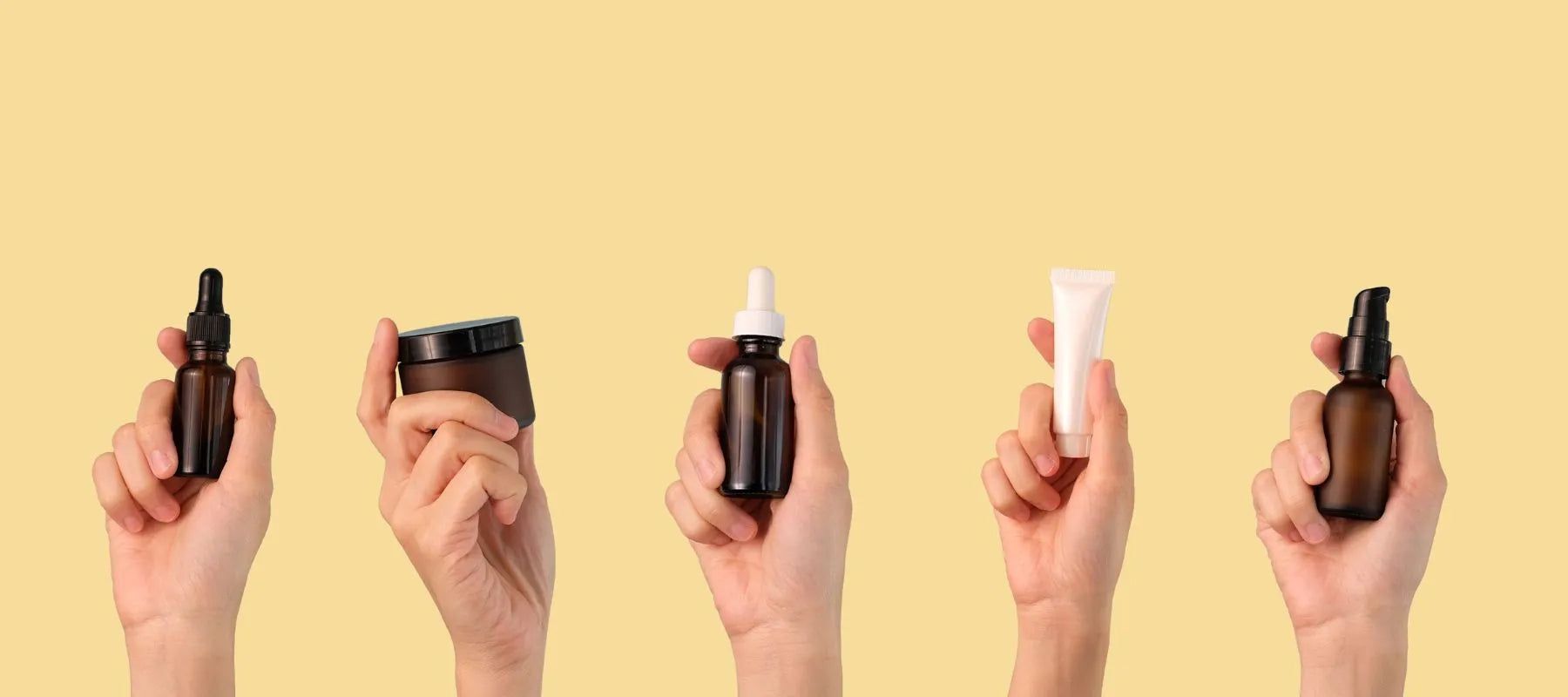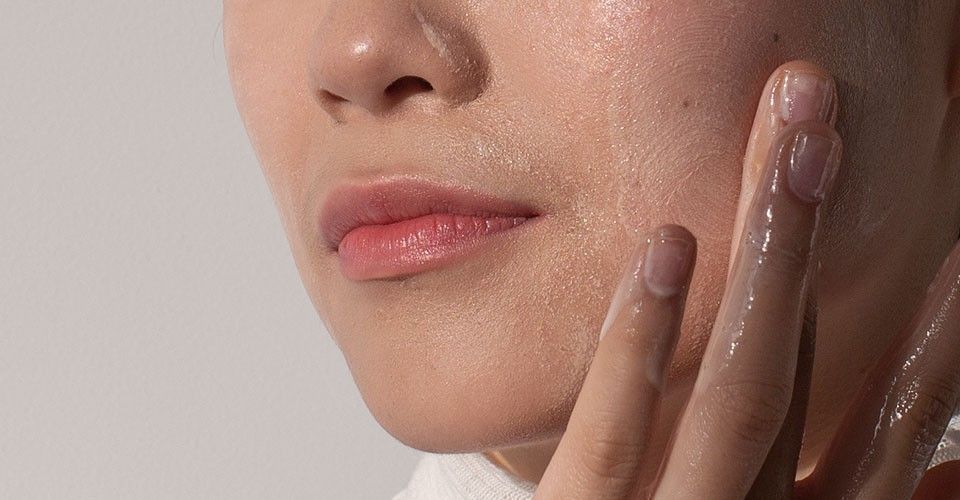Botanical Skincare: Plant Ingredients for Healthy Skin
Plant-based skincare is nature's gift to your skin. Botanical ingredients like aloe vera, green tea, and rosehip oil work with your skin's natural healing powers to create a healthy, glowing look. These gentle plant extracts have been helping people care for their skin for thousands of years - and now science shows us why they work so well.
In this article, you'll learn how to pick the best plant ingredients for your skin type, how to use them safely, and why they're better than harsh chemicals. We'll also share simple ways to add these natural helpers to your daily routine.
Understanding Plant Power for Your Skin
Plant ingredients are like vitamins for your skin. Just as eating healthy foods helps your body feel good, using plant-based skincare feeds your skin the nutrients it needs to stay healthy and strong.
What Makes Plants So Good for Skin
Plants are natural antioxidant powerhouses since they must thrive in constant direct ultraviolet (UV) light, making them perfect for protecting our skin from damage. According to the National Center for Complementary and Integrative Health , antioxidants help protect cells from damage caused by free radicals. When we put these plant extracts on our skin, we're giving it the same protection that plants use to stay healthy in nature.
Plants contain special helpers called bioactive compounds. These tiny workers include:
- Antioxidants that fight skin damage
- Vitamins that feed your skin cells
- Natural oils that keep skin soft
- Anti-inflammatory compounds that calm redness
The Science Behind Botanical Skincare
Botanicals that support the health, texture and integrity of the skin are widely used in cosmetic formulations for dry and mature skin because they work so well. Research shows that plant extracts can increase skin moisture, strengthen your skin's natural barrier, and help prevent signs of aging.
Global botanical skin care ingredients market size was valued at USD 1.22 billion in 2023 and is projected to reach USD 2.28 billion by 2031, proving that more people are discovering the power of plant-based skincare.
Top Plant Ingredients That Transform Your Skin
Let's look at the superstar ingredients that can make a real difference in how your skin looks and feels.
Aloe Vera: The Skin Soother
Aloe vera is like a cool drink of water for your skin. This amazing plant has been used for over 5,000 years to heal and soothe skin problems. The Mayo Clinic confirms that aloe vera gel can be effective for treating minor burns and skin irritations.
What Aloe Vera Does:
- Calms red, irritated skin
- Adds moisture without feeling greasy
- Helps heal small cuts and burns
- Reduces inflammation
Aloe vera contains anti-inflammatory properties which can reduce pain, swelling and soreness of cuts or injuries. It's perfect for sensitive skin because it's so gentle.
Green Tea: The Antioxidant Champion
Green tea isn't just good to drink - it's amazing for your skin too. This powerful plant is packed with antioxidants that protect your skin from damage.
Green Tea Benefits:
- Fights acne-causing bacteria
- Protects from sun damage
- Reduces fine lines and wrinkles
- Calms sensitive skin
Green tea has been shown to have anti-inflammatory and antioxidant effects in both human and animal skin. Research published in the Journal of the American Academy of Dermatology demonstrates that green tea's polyphenols can help protect against UV damage and may reduce signs of photoaging. The main active ingredient, EGCG, works like a shield to protect your skin cells.
Rosehip Oil: The Skin Renewer
Rosehip oil comes from the seeds of wild rose bushes. This golden oil is rich in vitamins and healthy fats that help your skin repair itself.
Rosehip Oil Powers:
- Fades dark spots and scars
- Boosts collagen production
- Moisturizes without clogging pores
- Evens out skin tone
Research found that participants who took rosehip powder orally experienced a noticeable increase in skin elasticity. When applied to skin, it can help reduce the appearance of scars and fine lines.
Chamomile: The Gentle Calmer
Chamomile is nature's way of saying "relax" to your skin. This gentle flower has been used for centuries to soothe irritated skin.
Chamomile Magic:
- Reduces redness and inflammation
- Calms sensitive skin reactions
- Helps with eczema and rashes
- Promotes skin healing
When applied topically, chamomile proved to be around 60% as effective as hydrocortisone cream for treating skin inflammation.
How to Choose the Right Plant Ingredients for Your Skin
Not all plant ingredients work the same for everyone. Here's how to pick the best ones for your skin type and concerns.
For Dry Skin
If your skin feels tight or flaky, look for ingredients that add moisture and lock it in:
- Aloe Vera - Adds water to your skin
- Shea Butter - Creates a protective barrier
- Rosehip Oil - Provides healthy fats
- Calendula - Soothes and heals
For Oily or Acne-Prone Skin
Oily skin needs ingredients that balance oil production without drying it out:
- Green Tea - Fights acne bacteria
- Tea Tree Oil - Kills germs naturally
- Witch Hazel - Tightens pores
- Chamomile - Reduces inflammation
For Sensitive Skin
Gentle skin needs extra-mild ingredients that won't cause reactions:
- Aloe Vera - Super gentle and soothing
- Chamomile - Reduces irritation
- Calendula - Heals without harsh effects
- Oat Extract - Calms and protects
For Aging Skin
Mature skin benefits from ingredients that boost collagen and fight damage:
- Rosehip Oil - Stimulates cell renewal
- Green Tea - Protects from free radicals
- Vitamin C from Plants - Brightens and firms
- Bakuchiol - Natural alternative to retinol
The Smart Way to Add Plants to Your Skincare Routine
Starting with botanical skincare is easy when you know the right steps. Here's how to do it safely and effectively.
Start Slow and Simple
Don't change everything at once. Pick one new plant ingredient and use it for a few weeks before adding another. This helps you see what works and avoid skin reactions.
Week 1-2: Add one plant-based cleanser or moisturizer Week 3-4: Notice how your skin feels and looks Week 5+: Add a second botanical product if the first one works well
Morning vs. Evening Use
Some plant ingredients work better at certain times:
Morning Routine:
- Green tea products (protect from daily damage)
- Aloe vera gel (light and hydrating)
- Plant-based sunscreen (essential protection)
Evening Routine:
- Rosehip oil (repairs while you sleep)
- Chamomile products (calm and soothe)
- Plant-based serums (deep treatment)
How to Test New Ingredients
Always test a new plant ingredient before using it on your whole face:
- Put a small amount on your inner wrist
- Wait 24-48 hours
- Look for redness, itching, or bumps
- If no reaction occurs, it's likely safe to use
Common Mistakes to Avoid with Plant Skincare
Even natural ingredients can cause problems if used wrong. Here are the most common mistakes and how to avoid them.
Using Too Much Too Soon
More isn't always better with plant ingredients. Start with small amounts and build up slowly. Using too much can irritate your skin or cause breakouts.
Mixing Ingredients That Don't Work Together
Some plant ingredients don't play well together. For example:
- Don't mix acidic plants (like lemon) with sensitive skin
- Avoid using too many active ingredients at once
- Keep oil-based and water-based products separate
Not Checking for Allergies
Just because something is natural doesn't mean it's safe for everyone. Always patch test new ingredients, especially if you have sensitive skin or allergies.
Expecting Instant Results
Plant ingredients work gently and gradually. Give new products at least 4-6 weeks to show results. Your skin needs time to adjust and improve.
Real Results: What Science Shows About Plant Skincare
Research proves that botanical ingredients really work. Here's what studies have found:
Proven Benefits
In 2018, 73.8% of anti-aging products contained botanical preparations, showing that even major skincare companies trust plant ingredients. This represents a 16% increase from 2011, proving that botanical skincare is getting more popular because it works.
Plant-Based Skincare Products Market Size is valued at US$ 1,109.7 Mn in 2024 and is predicted to reach US$ 2,394.1 Mn by the year 2034. This huge growth shows that millions of people are getting real results from plant-based skincare.
What People Experience
Studies show that regular use of botanical skincare can lead to:
- 30% improvement in skin hydration
- Visible reduction in fine lines and wrinkles
- Better skin texture and smoothness
- Less redness and irritation
- More even skin tone
Building Your Plant-Powered Skincare Routine
Creating a routine with botanical ingredients doesn't have to be complicated. Here's a simple framework that works for most people.
The Basic Four-Step Routine
Step 1: Gentle Plant-Based Cleanser Choose a cleanser with soothing ingredients like chamomile or green tea. This removes dirt and makeup without stripping your skin.
Step 2: Hydrating Plant Toner Use a toner with rose water, aloe vera, or witch hazel to balance your skin's pH and add moisture.
Step 3: Nourishing Plant Serum Apply a serum with concentrated plant extracts that target your specific skin concerns.
Step 4: Moisturizing Plant Oils or Creams Finish with a moisturizer containing plant oils like jojoba, rosehip, or argan oil to lock in hydration.
Weekly Additions
Once or twice a week, add these special treatments:
- Plant-based face mask with clay and botanical extracts
- Gentle plant exfoliant with oat or rice powder
- Deep moisturizing treatment with plant oils
Seasonal Adjustments
Your skin's needs change with the weather:
Summer: Focus on light, protective ingredients like green tea and aloe vera Winter: Use richer plant oils and butters to fight dryness Spring/Fall: Balance with gentle, healing ingredients like chamomile
Professional Guidance for Your Botanical Journey
While plant ingredients are generally safe, getting professional advice can help you get better results faster.
When to See a Skincare Professional
Consider visiting a professional esthetician or dermatologist if:
- Your skin doesn't improve after 6-8 weeks
- You develop new skin problems
- You're not sure which ingredients to use
- You want a customized treatment plan
Questions to Ask Your Skincare Professional
When you visit for a facial treatment , ask about:
- Which botanical ingredients suit your skin type
- How to layer different plant products
- What to expect from your new routine
- How often to get professional treatments
At facilities like Signal Skin Science , professionals understand how to work with your skin's natural processes and can recommend the best botanical ingredients for your individual needs.
Sustainability and Your Skin
Choosing plant-based skincare isn't just good for your skin - it's good for the planet too.
Environmental Benefits
Plant ingredients are renewable and biodegradable. Unlike synthetic chemicals that can harm the environment, botanical extracts break down naturally without leaving harmful residues.
Ethical Sourcing Matters
Look for brands that:
- Use organic farming methods
- Support fair trade practices
- Package products in recyclable materials
- Don't test on animals
Making Responsible Choices
You can support sustainable botanical skincare by:
- Buying from companies that are transparent about their sourcing
- Choosing products with minimal packaging
- Learning about the origins of your skincare ingredients
- Supporting local suppliers when possible
Final Thoughts
Plant-based skincare offers a gentle, effective way to care for your skin using nature's own wisdom. From the soothing power of aloe vera to the protective strength of green tea, botanical ingredients work with your skin's natural processes to create healthy, glowing results.
Remember that good skincare is a journey, not a destination. Start with one or two plant ingredients that match your skin's needs, be patient with the process, and don't be afraid to seek professional guidance when you need it.
Whether you're dealing with dryness, acne, sensitivity, or signs of aging, there's likely a plant ingredient that can help. The key is finding the right combination for your individual skin and using them consistently over time.
Your skin is your body's largest organ and deserves the gentle, nourishing care that only plants can provide. By choosing botanical ingredients, you're not just improving your skin - you're connecting with thousands of years of natural healing wisdom.
Ready to start your botanical skincare journey? Begin with one gentle plant ingredient, listen to your skin, and enjoy discovering the natural path to healthier, more radiant skin.
Looking for professional guidance on incorporating botanical ingredients into your skincare routine? Consider booking a consultation with experienced estheticians who understand the science of plant-based skincare and can create a personalized treatment plan for your unique needs.









